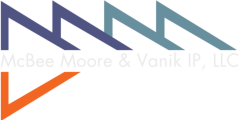On October 18, 2016, the United States Patent and Trademark Office (USPTO) published a proposed rule regarding recognition of privileged communications between clients and U.S. patent agents and foreign patent practitioners at the Patent Trial and Appeal Board. 81 Fed. Reg. 71,653.
The proposed rule would amend the current rules of practice before the Patent Trial and Appeal Board (PTAB) to recognize that communications between non-attorney U.S. patent agents or foreign patent practitioners and their clients that pertain to authorized practice before the USPTO are privileged to the same extent as communications between clients and U.S. attorneys. Under the proposed rule, those communications would be protected from discovery in trial practice proceedings at the USPTO.
The proposed rule would apply to inter partes review (IPR), post-grant review (PGR), the transitional program for covered business method patents (CBM), and derivation proceedings.
Current PTAB Rules Do Not Address Privilege
Currently, the rules governing proceedings at the USPTO do not address the privilege of communications with patent practitioners authorized to practice before the USPTO. PTAB proceedings are subject to the Federal Rules of Evidence (FRE), which include rules on attorney-client privilege. See 37 CFR § 42.62(a). Accordingly, privilege may be asserted in PTAB proceedings by licensed attorneys. However, the FRE does not address privilege for communications with non-attorney U.S. patent agents or with foreign patent practitioners. Thus, when an issue arises regarding privilege of communications with non-attorney patent practitioners, PTAB Administrative Law Judges make legal determinations as to which communications may be protected from disclosure on a case-by-case basis, based on common law.
Common Law Regarding Privilege is Varied
However, the common law on this issue is varied, leading to confusion and inconsistency within the PTAB on which standards to apply. The proposed rule would thus provide clarity on how to apply privilege between clients and U.S. patent agents and foreign patent practitioners.
The rule proposed by the Office seeks to add 37 C.F.R. § 42.57, entitled “Privilege for patent practitioners,” which would read:
(a) Privileged communications. A communication between a client and a domestic or foreign patent practitioner that is reasonably necessary or incident to the scope of the patent practitioner’s authority shall receive the same protections of privilege as if that communication were between a client and an attorney authorized to practice in the United States, including all limitations and exceptions.
(b) Definitions. The term ”domestic patent practitioner” means a person who is registered by the United States Patent and Trademark Office to practice before the agency under section 11.6. ”Foreign patent practitioner” means a person who is authorized to provide legal advice on patent matters in a foreign jurisdiction, provided that the jurisdiction establishes professional qualifications and the practitioner satisfies them, and regardless of whether that jurisdiction provides privilege or an equivalent under its laws.
Proposed Rule is Limited to Communications Within Scope of Patent Practitioner’s Authority
It is important to note that the rule is limited to communications within “the scope of the patent practitioner’s authority.” Therefore, communications between clients and U.S. patent agents regarding patent practice before the USPTO would fall within this privilege. However, any communications between clients and U.S. patent agents related to litigation proceedings would not be privileged.
USPTO Seeks Public Comments
The proposed rule is open for comments from the public. Written comments must be received by the USPTO on or before December 19, 2016 to ensure consideration. Details on the submission process are available within the proposed rule in the Federal Register.






